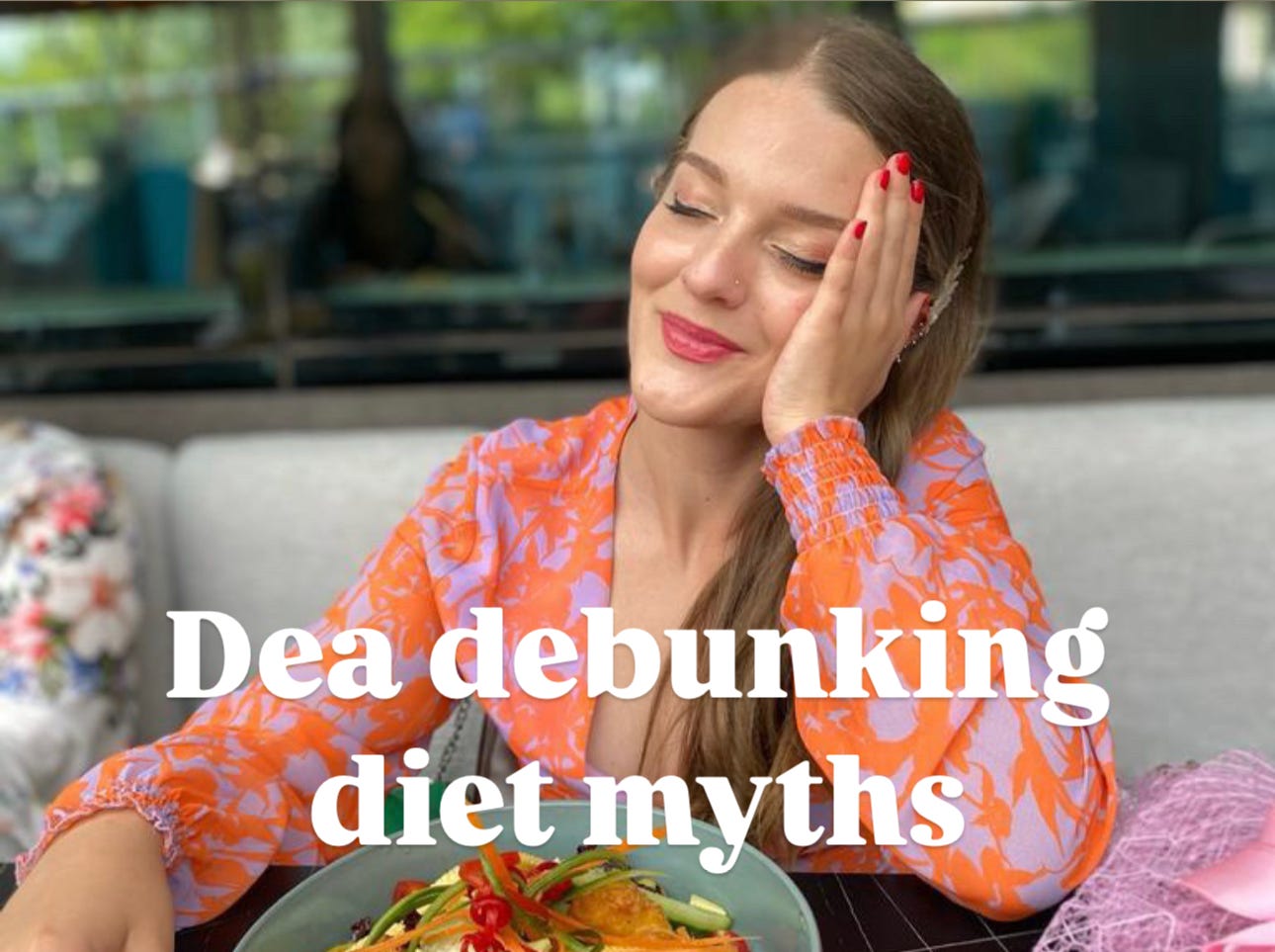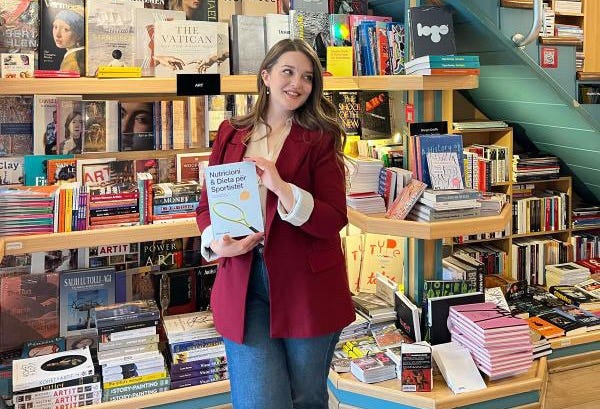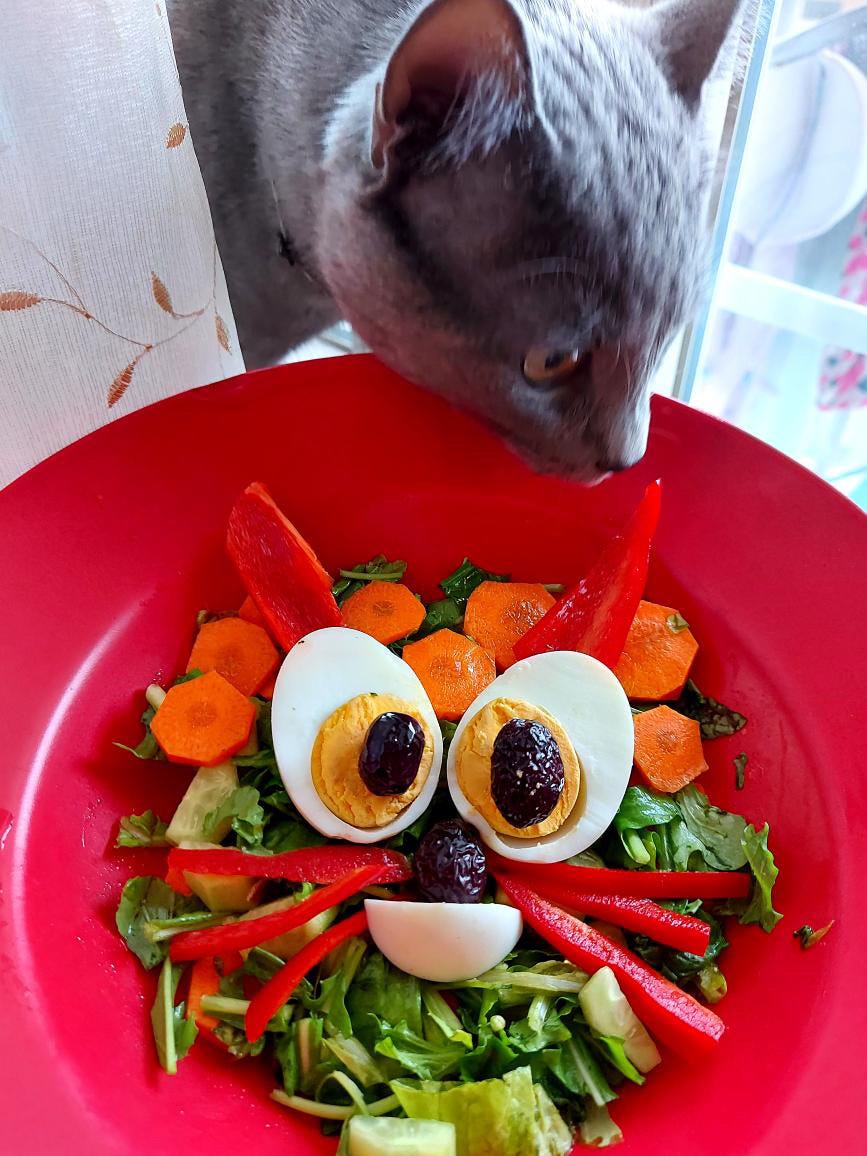Dea debunking diet myths
Our Friday's TenTen interview is bringing you some nutrition wisdom, culinary creativity, and a dash of smiles and charm from Dea Luma, an author on nutrition.
Brownies are irresistible. Pasul is a beloved Kosovar food—and healthier without meat. Vitamin D supplements are a must-have in sun-deprived Kosovo. And the words "diet" or "sugar-free" don't necessarily mean harmless. Nutrition is kinda complicated, fascinating, and often misunderstood, yet obviously very important, and not only for feeding TikTok trends.
That's why we're so thrilled to sit down with nutritionist Dea Luma today. Educated in Turkey and specialized in sports nutrition, Dea effortlessly bridges the gap between traditional Kosovar culinary habits and modern dietary academic know-how. From highlighting the importance of protein-rich breakfasts (that’s sorry, almond croissants for me), to debunking nutrition myths like "diet products are always safe," Dea gave us few food tips while championing delicious, health-conscious eating.
So, pour yourself a cup of unsweetened Turkish coffee—Dea’s beverage of choice—and join us for a nice, little TenTen convo with Kosova’s voice of nutritional wisdom, Dea Luma.
Good morning! I just started my day with a coffee and an almond croissant. Is there a food you knowisn't healthy but still can’t resist?
Good morning, Arlinda! It looks like you've started your day with a high amount of carbohydrates and coffee, just like the Italians ahhahaha. For better health, I can recommend you to include a source of protein in your breakfast, such as milk, yogurt, cheese, or eggs.
I know they're not healthy because they contain high amounts of fat, refined sugar, and chocolate, but I just can't resist brownies. I could eat them at any time of the day and in unlimited amounts!
How would you rate the average Kosovar eating habits on a health scale from 1 to 10—and why?
In Kosova, the consumption of pastries, carbohydrates, meat, butter, margarine, and coffee is high, while the intake of vegetables, fruits, and water is very low. Many people skip breakfast, which is the most important meal for health, and remain hungry throughout the day, compensating for their energy needs with food in the evening. However, there is a positive side: they often cook PASUL. Therefore, I would rate it a 5.
What’s the weirdest nutrition myth you’ve ever heard?
I usually don’t pay much attention to nutrition myths because everyone seems to think they know a lot about nutrition, health and especially metabolism... However one of the most interesting myths about nutrition is the belief that "diet", "sugar free"and "low calorie" products are harmless and can be consumed without limit. Diet products often contain artificial sweeteners and frequent and high consumption of these foods is harmful to health, even carcinogenic is case of aspartame.
If you could redesign a classic Kosovo meal to make it more nutritious without losing the flavor, which one would it be?
Traditional foods are very difficult to redesign because they are so unique and contain irreplaceable ingredients. However, I would cook pasul without meat and avoid adding too much fat. You would sauté the onions with a bit of olive oil. I’ve been cooking it this way for years, and it tastes fantastic—give it a try!
Social media are full of stories on supplements from magnesium and vitamin D to weird mushrooms. What are your thoughts on supplements—helpful or hype?
Supplements are necessary only when there is a deficiency or an increased need like pregnancy or engaging in sports, that cannot be met through diet alone. It's always best to consult a dietitian before taking nutritional supplements to avoid unnecessary intake or potential side effects. For example the geographic position of Kosova is not suitable for consistent sun exposure throughout the year, which is why vitamin D deficiency is very high in our population. Foods like salmon, milk, and eggs can only provide about 10% of the required vitamin D, which is why supplementation becomes necessary.
Are people nowadays more nutrition label-conscious or health-aware when shopping for food? Are consumer behaviors changing at all?
In recent years, awareness about healthy eating has definitely increased, but it’s still far from sufficient. More people are paying attention to nutrition labels, looking for things like added sugars, artificial ingredients, and calorie content. However, many still don’t fully understand how to interpret these labels correctly. When shopping for food, I’ve noticed that a lot of consumers are influenced more by marketing claims like "diet", “low-fat” or “sugar-free” rather than the actual nutritional value of the product. There’s also a growing trend toward organic and "natural" foods, but sometimes, people assume these are automatically healthier, which isn’t always the case. Overall, consumer behavior is changing, but slowly. While there’s a shift toward healthier choices, many still lack the right knowledge to make truly informed decisions. There’s a need for more education on nutrition so that people can differentiate between marketing buzzwords and real health benefits.
You studied in Turkey and specialized in sports nutrition. What’s one thing those who do sports, or just gym and running, often overlook when it comes to their diet?
Not only in Turkey but everywhere, this group of people often overlooks the importance of consuming carbohydrate, fiber, and vitamine sources "fruits and vegetables". They cannot achieve maximum performance or the perfect look just by eating chicken breast and rice.
What book or tv series are you currently reading / watching that is impressing you?
In addition to academic books and journals, I read extensively about Sufism, spirituality, and related topics because each of us needs to nourish not only the body but also the soul. Recently, I have started reading The Mathnawi Of Mawlana Jalaladdin Rumi. I spend most of my day working on my laptop, so I don't have much time to watch movies or TV shows. However, while cooking, cleaning, or getting ready to sleep, I listen to turkish TV series.
Are you a çaj or coffee person? And what's better?
I’m a coffee person, but I only drink filter coffee and Turkish coffee, and never add sugar to my coffee. I love sweet foods, but I hate drinking sweet baverages. Coffee is always a better choice if you can control it, but when coffee starts to controle you, run! :)
You just published a book on sports and nutrition. What are few key points you write about?
My book Nutrition and Diet for Athletes encompasses a comprehensive collection of fundamental yet highly valuable knowledge on sports nutrition. It begins by discussing the distinction between nutrition and dietetics, a topic that is very important to me and and all professionals. The book then covers energy needs, macronutrients, micronutrients, some of the most commonly used supplements by athletes, hydration, and a very new topic in sports nutrition: rehabilitation nutrition for injured athletes. Read on and dive deeper into the knowledge it offers!






